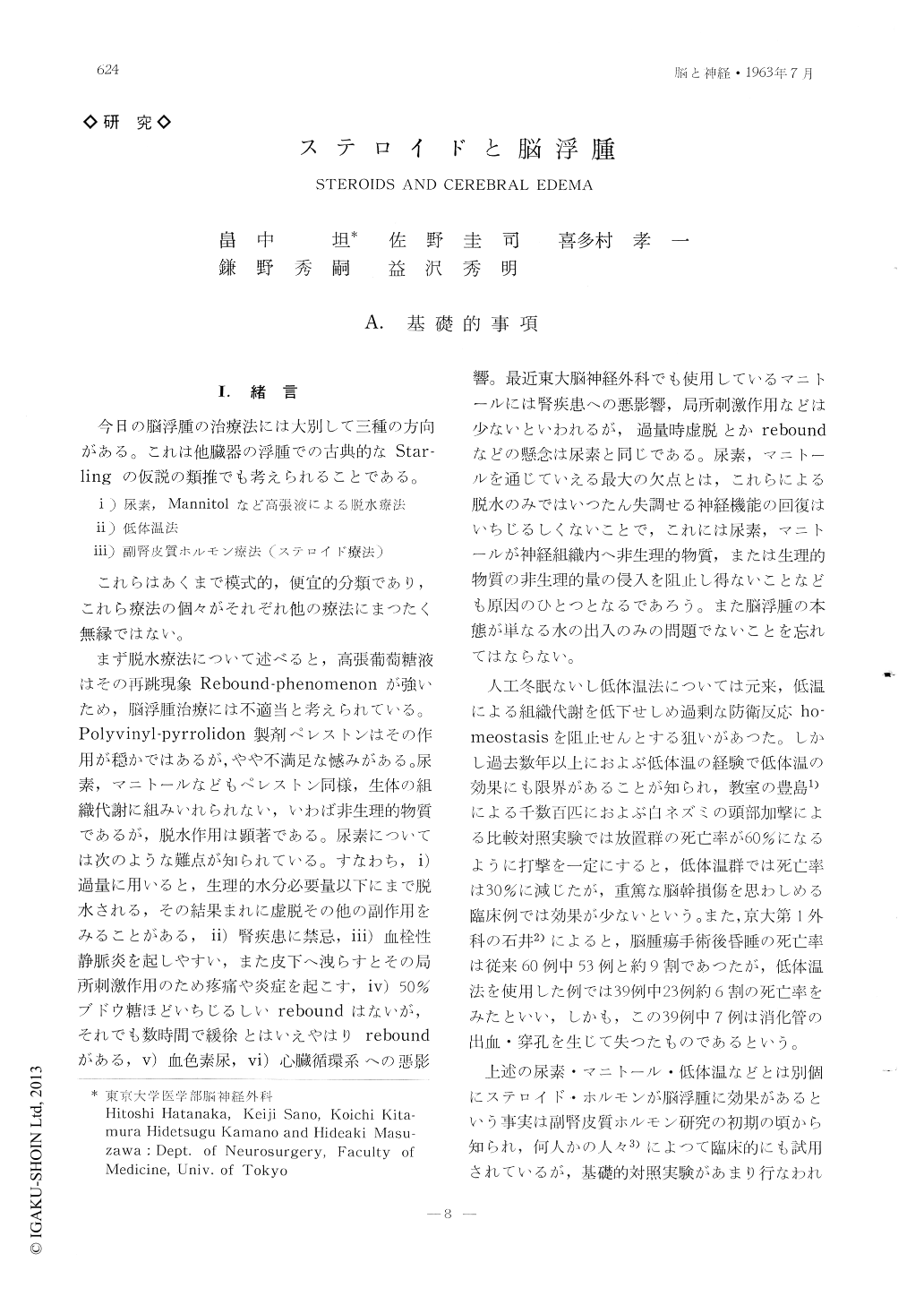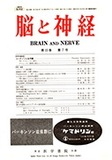Japanese
English
- 有料閲覧
- Abstract 文献概要
- 1ページ目 Look Inside
A.基礎的事項
I.緒言
今日の脳浮腫の治療法には大別して三種の方向がある。これは他臓器の浮腫での古典的なStar—lingの仮説の類推でも考えられることである。
i)尿素,Mannitolなど高張液による脱水療法
The Present day neurosurgeons have 3 major types of anti-cerebral edema therapy-Dehydration by hypertonic Urea, Mannitol, Pereston and others; Hypothermia; & Corti-costeroids. Reports have been made since ten years ago on the effect of the last one. However, it has not been so widely acknow-ledged, partly due to the lack of remarkable data proving its effect both in clinical and laboratory experiments.
The authors proved that corticosteroids pro-tect the Blood-Brain Barrier conspicuously, by inhibiting the invasion of RISA (I131-Serum Albumin) into the damaged brain tissue (1,089 c. p. m. in Prednisolone premedicated dogs; 13,525 c. p. m. in no-Prednisolone dogs).
The authors have instituted Steroid therapy in a large amount against the cerebral edema. Watersoluble hormones are being injected (Prednisolone, initially 40~80mg intravenously, then 20mg every 3 hours intramuscularly, totalling to 200 mg daily; or Betamethasone, 16~40 mg daily, 12~24 mg initially). To preve-nt the exacerbation of digestive tract ulcers proteo-anabolic steroid-hormones are used in a large amount. The fatal post-neurosurgical comatose conditions have been strikingly improved by the large dosis of these steroids. Almost all these comatose cases have restored consciousness or respiration, although very few died due to accidental complications. Prophylactic use of the hormones are also being installed.
Severest cases of head injuries (containing intracranial hematomas as well as cerabral contusions) have shown striking improvements.
The mechanism of these effects was discu-ssed from some proteo-chemical, enzymo-che-mical and electro-chemical aspects.

Copyright © 1963, Igaku-Shoin Ltd. All rights reserved.


